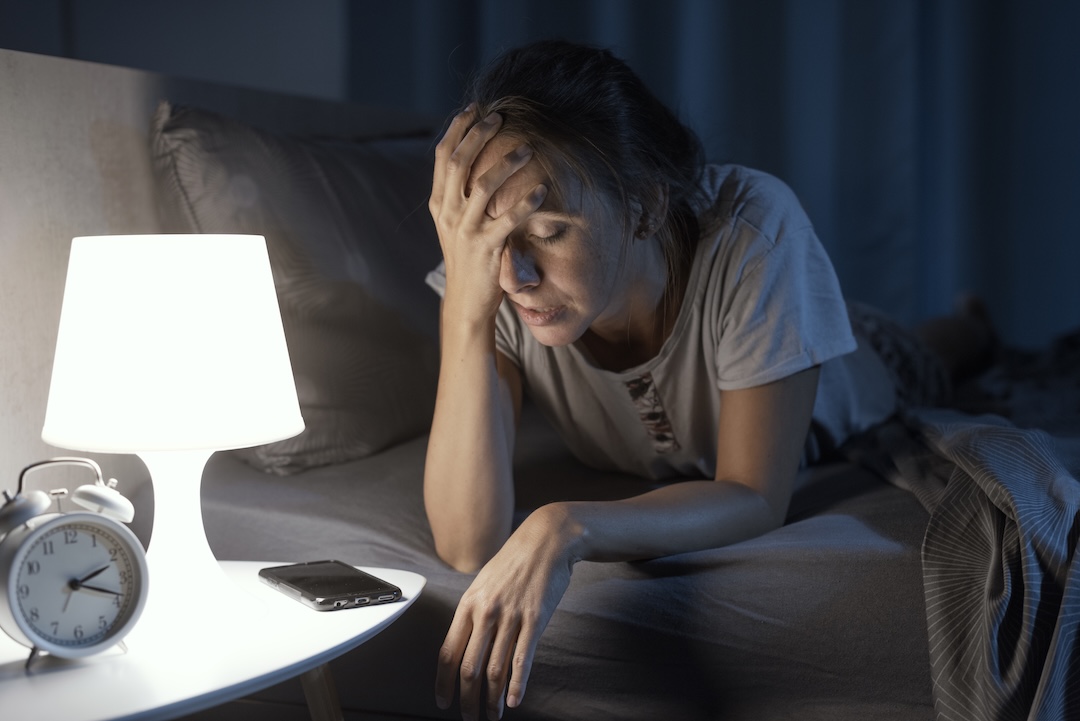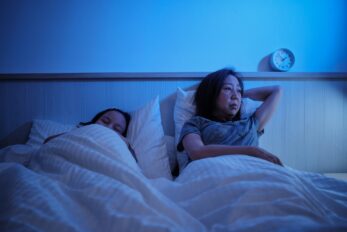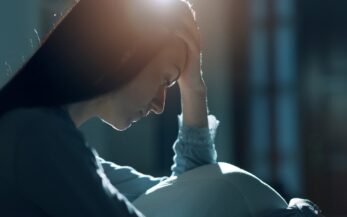You’re in bed. Again. Wide awake. Again.
The ceiling has nothing new to say, and you’re starting to consider counting sheep. Sound familiar?
If you’re reading this in the middle of the night with tired eyes and a tired brain that refuses to cooperate, you’re not alone. But you are in the right place. At Sleep Therapeutics, we work with folks like you every day—people who are just plain exhausted and ready for answers.
You might be thinking, “I probably just have insomnia. Right?”
Maybe. But if sleep has been a struggle for a while, it’s worth asking: could it be something more?
First up: What is insomnia?
Insomnia is a sleep disorder that makes it hard to fall asleep, stay asleep, or feel rested when you wake up. It’s incredibly common—and incredibly frustrating.
Some classic insomnia symptoms:
- Trouble falling asleep (even when you’re tired)
- Waking up frequently during the night
- Waking up too early and not being able to fall back asleep
- Feeling tired or foggy during the day
- Feeling irritable or anxious about not sleeping (which only makes it worse—fun!)
Insomnia can be short-term (like after a stressful week or big life event) or it can become a longer-term issue. Either way, it can seriously impact your mood, focus, and overall well-being.
But here’s the twist: It might not be insomnia.
There’s a sneaky sleep disorder out there that often disguises itself as insomnia. It’s called obstructive sleep apnea (OSA), and it can cause very similar symptoms—including feeling unrested, waking up multiple times a night, and dragging through your days like a zombie.
Sleep apnea doesn’t always show up the way you’d expect. Not everyone who has it snores like a buzzsaw. Some people don’t even know they snore at all. Others just think they’re “bad sleepers.”
So… what’s the difference between insomnia and sleep apnea?
Here’s a quick side-by-side to help you figure it out:
| Symptom | Insomnia | Sleep Apnea |
| Can’t fall asleep easily | ✅ | ❌ (Usually fall asleep fast, but wake up often) |
| Wake up multiple times per night | ✅ | ✅ (often due to breathing disruptions) |
| Feel tired in the morning | ✅ | ✅✅✅ |
| Wake up gasping or choking | ❌ | ✅ |
| Snoring (or being told you snore) | ❌ | ✅ |
| Dry mouth or sore throat in the morning | ❌ | ✅ |
| Morning headaches | ❌ | ✅ |
| Trouble focusing during the day | ✅ | ✅ |
| Mood swings, anxiety, or depression | ✅ | ✅ |
Still not sure? You’re not alone. That’s why so many people live with undiagnosed sleep apnea—because it hides in plain sight.
Here’s why it matters
If you’re treating what feels like insomnia, but it’s actually sleep apnea, the usual tricks and sleep hygiene hacks just won’t cut it. No amount of herbal tea or meditation apps can fix a blocked airway. (We’ve tried.)
Sleep apnea isn’t just about feeling tired. It’s linked to serious health issues like heart disease, high blood pressure, type 2 diabetes, and more. So getting the right diagnosis matters.
What to do next (you’re already halfway there)
If you’re wondering which camp you fall into, here are a few smart next steps:
1. Start a quick sleep journal.
Track how long it takes you to fall asleep, how often you wake up, and how you feel in the morning. Sleeping with a partner? Ask them if you stop breathing at night or snore loudly.
2. Check your risk level.
We’ve got a super simple quiz to help you find out if you might be at risk for sleep apnea. (Takes less than a minute—unless you fall asleep halfway through. In which case… not insomnia!)
3. Book a sleep consult.
Whether it’s insomnia, sleep apnea, or a combo of both, we can help you figure it out. Our team will walk you through your options, including take-home sleep testing if needed.
Quick tips for insomnia (that actually work)
If your symptoms lean more toward straight-up insomnia, here are a few things you can try while you wait for your consult:
- Stick to a sleep schedule. Yes, even on weekends.
- Limit screens an hour before bed. Blue light = brain thinks it’s daytime.
- Keep your bedroom cool, dark, and quiet. Think cave vibes.
- Watch the caffeine. Your 3 PM coffee might still be partying in your system at midnight.
- Don’t force it. If you can’t sleep after 20 minutes, get up and do something quiet. (Resist the urge to scroll. We see you.)
Final thoughts…
Sleep issues can feel overwhelming—but you don’t have to figure it out alone. Whether it’s insomnia, sleep apnea, or a mix of both, we’re here to help you sort it out.
So go ahead, take the quiz. Book a call. Start your journal. You’re already one step closer to better sleep.






